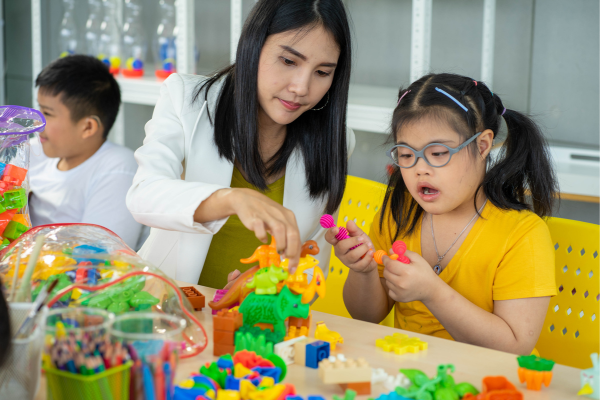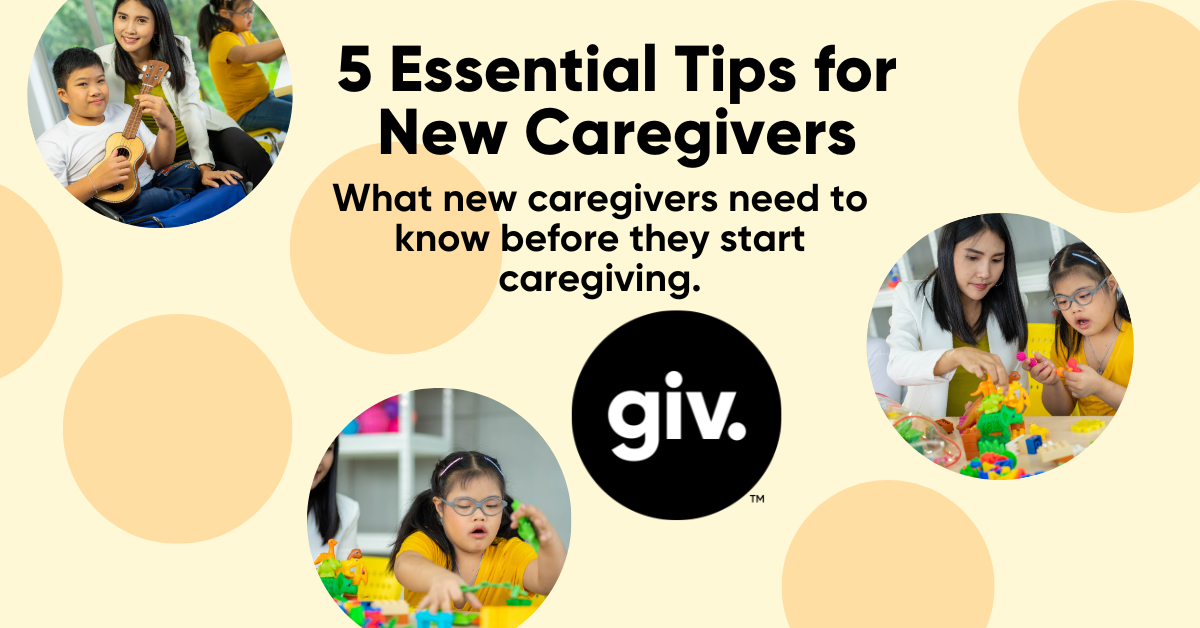Being a caregiver is no easy task. It requires dedication, patience, and a deep sense of responsibility. For new caregivers, it may seem overwhelming. However, with the right tips and guidance, you can navigate this role with confidence and provide the best possible care to your loved ones. These 22 tips for new caregivers will give you the greatest success in your journey.
Tips for New Caregivers
Taking on the caregiver role for the first time can be both rewarding and challenging. As a new caregiver, it is crucial to be well-prepared and equipped with the necessary knowledge and skills. Understand the importance of effective communication, staying organized, and leveraging available resources.
Learn Effective Communication
Communication is key to building strong relationships and ensuring the best care for your loved one. As a caregiver, you must establish open and honest lines of communication with family members, health care providers, and other caregivers. Regularly update family members on the care recipient’s condition and involve them in decision-making processes. Effective communication also means actively listening to the needs and concerns of your loved one and addressing them compassionately.
Stay Organized
Caregiving responsibilities can be demanding, and staying organized is essential for managing the myriad of tasks efficiently. Create a caregiving schedule that allows you to allocate time for personal care, medical appointments, and other essential activities. Keep medical records and important documents easily accessible, enabling you to provide accurate information to healthcare professionals whenever necessary. Utilize mobile apps and digital tools that can help you keep track of medication schedules, appointments, and other caregiving tasks.
Take Advantage of Available Resources
As a new caregiver, you don’t have to navigate this journey alone. Numerous resources are available to support you on your caregiving journey. Seek out support groups and connect with other caregivers who can provide advice, empathy, and shared experiences. Consider reaching out to mental health professionals who can offer guidance and support in managing any emotional challenges that may arise. Additionally, explore community services and organizations that provide respite care, giving you a few hours of relief and time to focus on your own needs.
Prioritizing Mental Health
Taking care of your loved one is important, but it is equally vital to care for your own mental health. Caregiving can be emotionally demanding, and neglecting your well-being can lead to burnout and frustration. Remember to take breaks, engage in self-care activities, and seek support from friends and family. Don’t hesitate to ask for professional help if you find yourself feeling overwhelmed or unable to cope with the challenges of caregiving. Prioritizing your mental health will ultimately allow you to provide better care for your loved one.
Building a Support System
Recognize that you don’t have to shoulder the caregiving responsibilities alone. Reach out to family members, friends, and other caregivers for support. Building a strong support system can provide emotional support, relieve stress, and offer practical assistance. Share your caregiving experiences and feelings with a trusted friend or join a support group where you can connect with individuals facing similar challenges. Remember, you are not alone in this journey, and seeking support can make a world of difference.
Setting Boundaries
While caregiving requires dedication and hard work, it is essential to establish boundaries to protect your own well-being. Understand your limitations and avoid taking on more than you can handle. Learn to say no when necessary and delegate tasks to other family members or professionals. Setting boundaries will enable you to provide the best care possible without sacrificing your own physical and mental health.

Seeking Professional Help
Sometimes, the best way to provide the best possible care is to seek professional assistance. Consult healthcare professionals, such as doctors, nurses, or therapists, to gain valuable advice and guidance specific to your loved one’s condition. They can provide insights on managing symptoms, medications, and improving the quality of life for your loved one. Utilize the expertise of these professionals to enhance your caregiving journey.
Nurturing Your Own Well-being
Taking care of yourself is not a selfish act, but a necessary one to be the best caregiver you can be. Engage in activities that bring you joy, such as hobbies, exercising, or spending time with friends. Practice self-care regularly, including getting adequate rest, eating healthy foods, and maintaining a balanced lifestyle. Prioritizing your own well-being will enhance your resilience and enable you to provide the best care for your loved one.
Accessing Available Resources
Take advantage of the numerous resources available for caregivers. Some resources may include support groups, online forums, and educational materials that cater specifically to your loved one’s condition. Reach out to local disability caregiving agencies, such as giv.care, who specialize in providing caregiving services to individuals with intellectual and developmental disabilities. These agencies can offer valuable guidance, connect you with other caregivers, and provide helpful resources tailored to your unique caregiving situation.
Seeking Emotional Support
Caregiving can sometimes evoke complex emotions and feelings of stress. It is important to acknowledge and address these emotions. Seek emotional support from friends, family members, or support groups who can offer empathy, understanding, and a listening ear. Engaging in open conversations about your feelings and experiences can help alleviate the emotional burden of caregiving and provide a sense of relief.
Balancing Responsibilities
As a new caregiver, you may find it challenging to balance your caregiving responsibilities with other aspects of your life. It is vital to find a balance that works for you and takes into account your own needs and commitments. Remember that you are not required to do everything yourself. Delegate tasks to other family members or seek professional assistance when necessary. By finding a healthy balance between caregiving and other responsibilities, you can ensure that you are providing the best care while maintaining your own well-being.
The Importance of Self-Care
Self-care is not a luxury, but a necessity for caregivers. Taking care of yourself allows you to recharge and approach your caregiving duties with renewed energy and compassion. Engage in activities that bring you joy and help you unwind. Whether it’s reading a book, going for a walk, practicing mindfulness, or enjoying a hobby, make sure to incorporate self-care into your daily routine. Remember, you can better care for others when you prioritize your own well-being.
Coordinating with Healthcare Professionals
Establishing a strong partnership with healthcare professionals is crucial for providing the best care to your loved one. Regularly communicate with doctors, nurses, therapists, and other healthcare providers involved in your loved one’s care. Keep them informed about any changes in their condition, medication adjustments, or concerns you may have. Collaborate with these professionals to ensure seamless coordination and to stay updated on the best practices for managing your loved one’s health needs.

Maintaining Medical Records
Accurate and up-to-date medical records are essential for effective caregiving. Keep organized records of your loved one’s medical history, including diagnoses, treatments, medications, and any other relevant information. These records will not only facilitate communication with healthcare professionals but also serve as a valuable resource for future reference. Consider using online platforms or apps that can help you maintain and easily access medical records, ensuring that you have all the necessary information at a moment’s notice.
Understanding Respite Care
Caregiving can be physically and emotionally demanding, and it’s essential to take breaks and prioritize your own needs. Respite care offers temporary relief for caregivers, allowing them to recharge and attend to their own well-being. Explore options for respite care, such as hiring a professional caregiver or utilizing respite care programs available in your community. Taking regular breaks will help prevent burnout and enable you to provide better care in the long run.
Ensuring Personal Care
In addition to attending to the medical and physical needs of your loved one, ensure that their personal care and hygiene are maintained. Providing assistance with grooming, bathing, dressing, and other personal care tasks is an important aspect of caregiving. Approach these tasks with empathy and sensitivity, always focusing on preserving your loved one’s dignity and respecting their preferences.
Promoting a Healthy Lifestyle
Encourage your loved one to maintain a healthy lifestyle by incorporating regular exercise, nutritious meals, and adequate rest into their routine. Consult healthcare professionals for guidance on proper nutrition and suitable exercises based on your loved one’s condition. By prioritizing their physical health, you can help them thrive and improve their overall well-being.
Taking Advantage of Technology
In today’s technology-driven world, caregivers can leverage various mobile apps and digital tools to streamline caregiving tasks. From medication reminders to health tracking applications, these technological aids can help in keeping track of appointments, managing medication schedules, and monitoring vital signs. Explore available mobile apps specifically designed for caregivers, and utilize them to ease the burden of caregiving responsibilities.
Advocating for Your Loved One
As a caregiver, you play an essential role in advocating for your loved one’s needs and rights. Familiarize yourself with their rights as a person with disabilities and ensure they receive the best possible care and support. Be their voice when necessary, communicating their preferences, concerns, and desires to healthcare professionals and other relevant parties.
Maintaining a Sense of Normalcy
While caregiving may bring numerous challenges, strive to maintain a sense of normalcy in your loved one’s life. Encourage engagement in activities they enjoy, such as hobbies, social gatherings, or outings with family and friends. This can help boost their mental well-being and provide a sense of joy and fulfillment.
Dealing with the Emotional Impact of Caregiving
Being a caregiver can evoke a range of emotions, from love and fulfillment to stress and guilt. It is essential to recognize and address these feelings. Seek emotional support from friends, family, or support groups to process your emotions and share your experiences. Additionally, consider consulting with a mental health professional who specializes in caregiver support. They can provide guidance on coping strategies and help navigate the emotional challenges that may arise throughout your caregiving journey.
Finding the Best Caregiver Resources
While caregiving can be one of the toughest jobs, there is an abundance of resources available to support and empower caregivers. Research and explore resources such as books, websites, and online communities that cater specifically to caregivers. These resources can provide valuable advice, tips, and insights from experienced caregivers who have been through similar challenges. By constantly learning and seeking out new information, you can enhance your caregiving skills and provide the best care possible.

Conclusion
Being a new caregiver can be a demanding and life-changing experience. By following these tips, you can navigate the challenges of caregiving with confidence and provide the best possible care for your loved one. Remember to prioritize your own well-being, seek support when needed, and take advantage of available resources. Being a caregiver is a noble and selfless role, but it is essential to also care for yourself along the way. Your commitment and dedication will make a tremendous difference in the lives of your loved ones.






